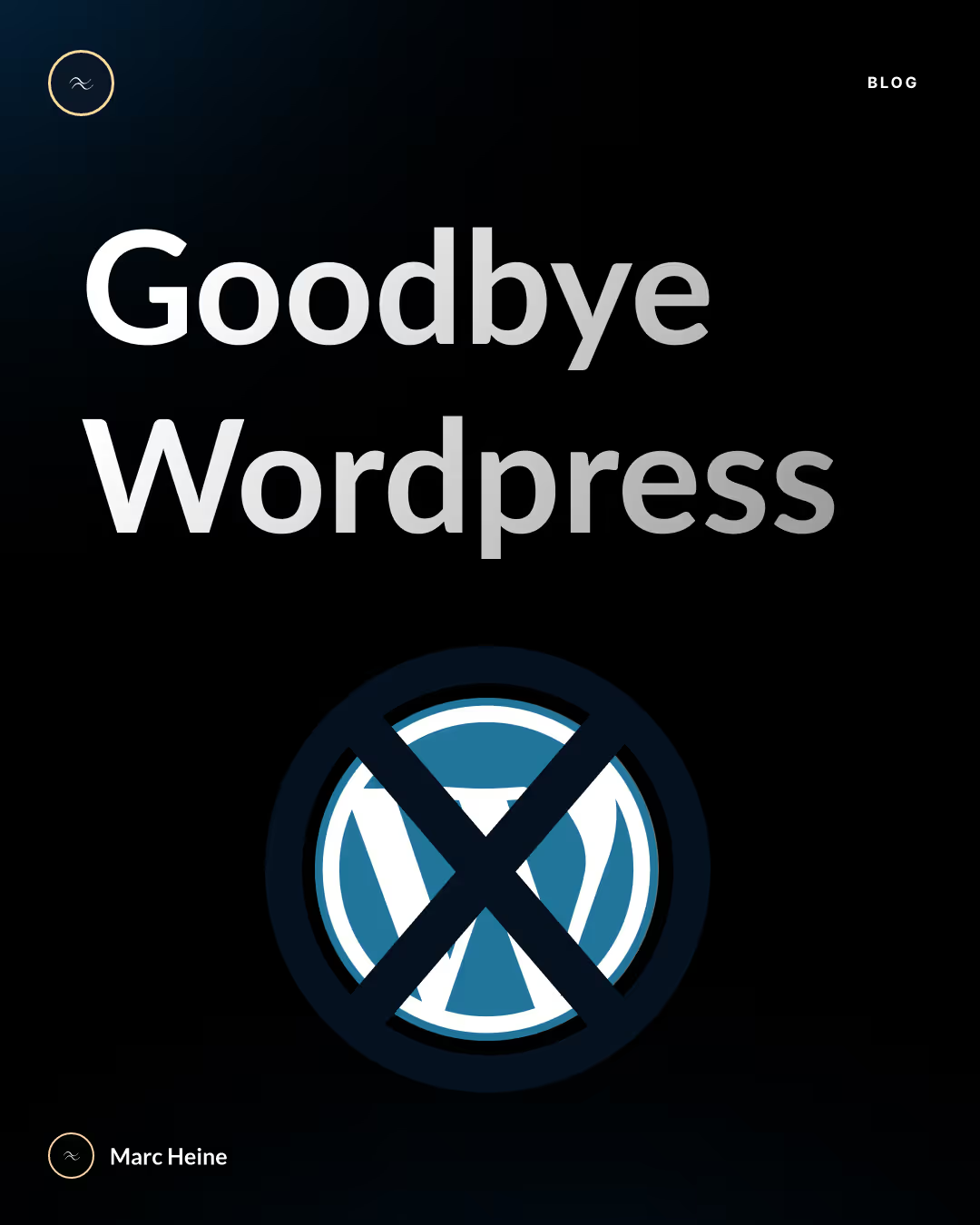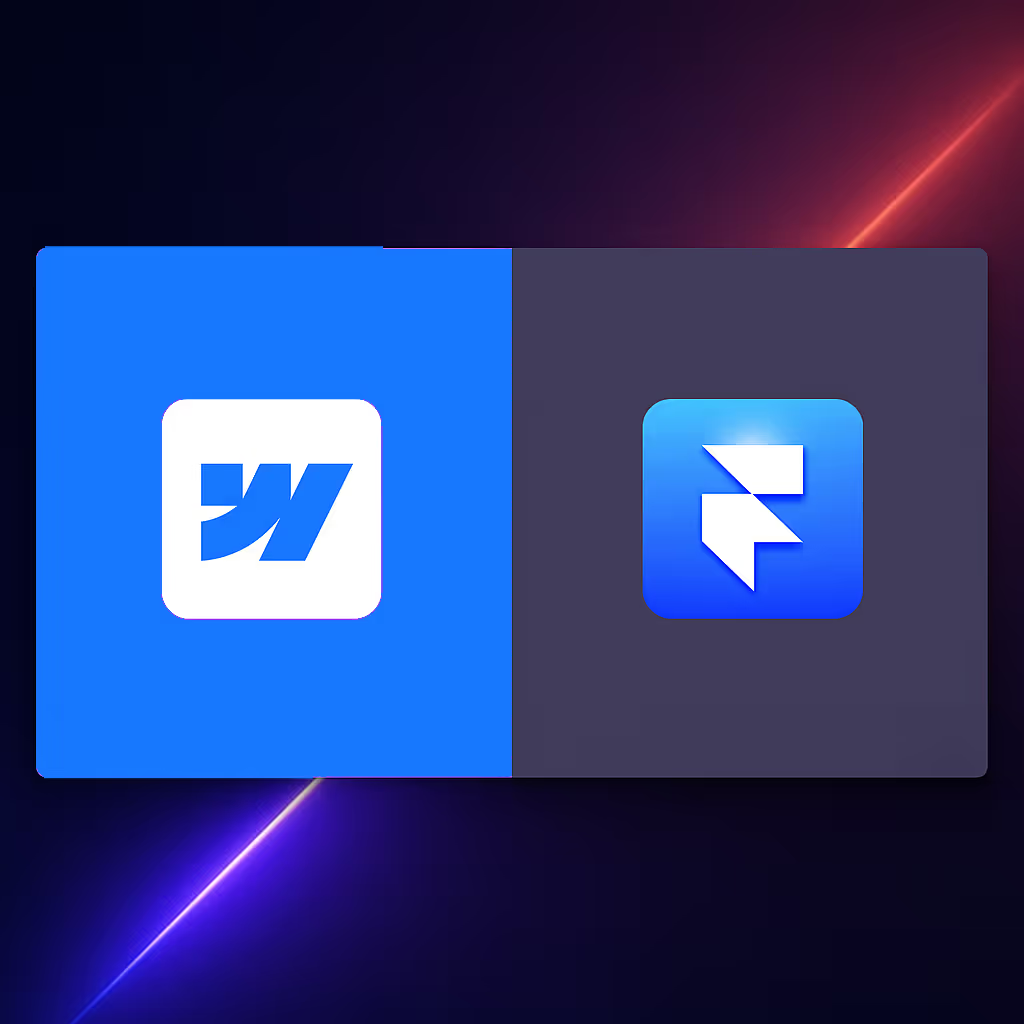
A few years ago, it was clear that I was implementing a new website with Wordpress. Wordpress is widely used and everyone uses it. Today, there is a very high probability that Wordpress will no longer be the right choice for your company website in 2023.
I worked with Wordpress for over 10 years and have now drawn a line. I hope I can help you find the right system for you and your company with this article.
My reasons for switching from Wordpress to Webflow
1. Dependence on plugins
Plugins are actually a nice thing, do you need a registration form on your website? Great, there's a plugin for that. Do you need to optimize your site for SEO? There is also a plugin for that. Want to build your website with a website builder? There is also a plugin for that. In reality, however, many plugins cause a lot of problems.
Many plugins from different developers add bloated code to your site and can lead to security breaches. For me and my customers, however, the worst thing is that these plugins have to be updated regularly and the website has to be maintained.
Plugins can break things, so I had to hold my breath with every update. (Despite backups)
After updates, it often happens that the various plugins no longer get along with each other and so your website is displayed incorrectly. This always involves lengthy troubleshooting and has wasted an unnecessary amount of time and energy.
If you don't make these updates because you don't want anything to work on your site, a new problem will arise. Outdated plugins quickly become the target of hacker attacks. Another downside of plugins is that your website gets slow. There are some good plugins that are optimized for running Wordpress quickly. Unfortunately, this does not apply to everyone by a long way.
My customers usually don't want to carry out the updates themselves and hire me to do the monthly updates. As a web designer, it never felt good for me to take money for such a service and I felt more and more placed in the role of an administrator. My aim is to create impressive websites for my customers and not to receive money through maintenance contracts.
What makes Webflow better here?
Webflow follows a plug-in-free approach and acts here as a closed system. As a result, the functions harmonize perfectly with each other without carrying out updates or adding bloated code to the page.
2nd 3rd party hosting provider
There are so many hosting providers for Wordpress websites. Many attract visitors with low prices, but forego reliability and performance. Good hosts with fast loading times can also make money quickly. Actually, no one really wants to deal with the various hosts and make settings in the backend or fix errors.
Comparing Webflow Hosting:
Webflow hosting is designed to be serverless and extremely fast. Webflow has 99.99% uptime and there's never a need to update or adjust anything on the server side of your site. That's a huge advantage for me.
3. The costs
Yes, for many, Webflow appears expensive or more expensive at first glance. This is because cheap hosts and exclusively freely available plugins make it really cheap to set up Wordpress websites. However, these are slow, unhealthy websites without security standards, which have to be updated yourself or incur further maintenance costs. Implementing a website as powerful and secure as the one created with webflow with Wordpress will in most cases cost significantly more. (Hosting costs, page builder costs, security plugin costs, maintenance costs, SEO plugin costs, loss of time, etc.)
4. Design with limitations
I implemented my Wordpress websites with Pagebuilder Elementor. That's how I was able to offer really tailor-made websites for my customers. However, I have repeatedly reached limits with Wordpress and Elementor and had to take detours or design entire sections differently. Elementor is getting better and better with new updates, (flexbox, Loopbuilder, etc.) but it doesn't come close to Webflow's design freedom. With Webflow, I am able to implement any design and complex animations.
5. Too many different providers
As is well known, too many chefs spoil the porridge, as I felt with my Wordpress websites. A separate service for web design, a separate service for web development, a separate service for hosting and managing a server, a separate service for add-ons (plugins), etc.
Webflow combines all of this and gives you more control over your website.
Conclusion:
In summary, I am particularly bothered by things like maintaining Wordpress websites, setting reminders to update plug-ins, slow website load speeds and server errors.
Regardless of which system you choose, you can create first-class websites with Wordpress and Webflow. Every system has its strengths and weaknesses. In the end, everyone has to decide for themselves what they value in a website system. For my part, I've made a decision and will rely 100% on Webflow from now on.
You can try out Webflow for free here:
https://webflow.grsm.io/77zg9e1s3png *
*Affiliate link













